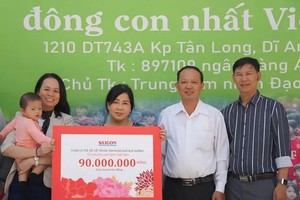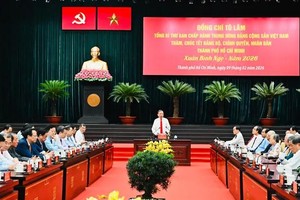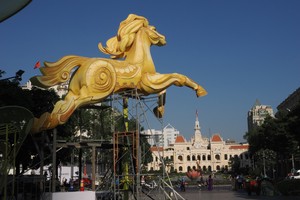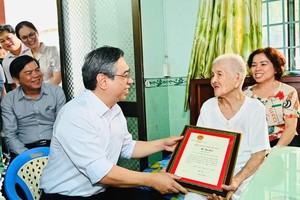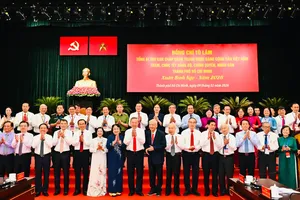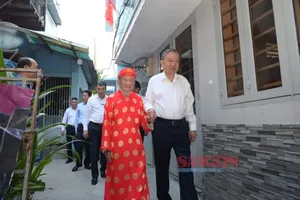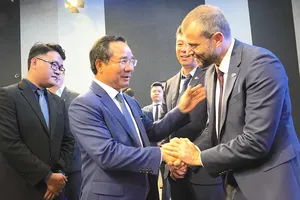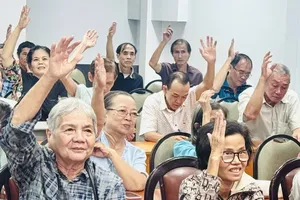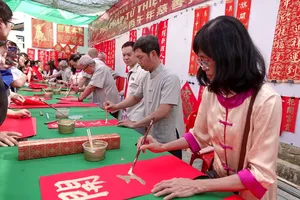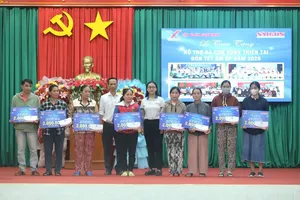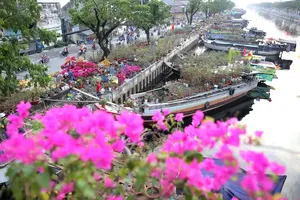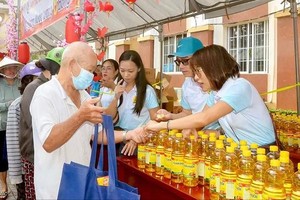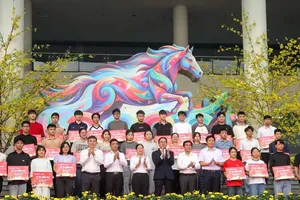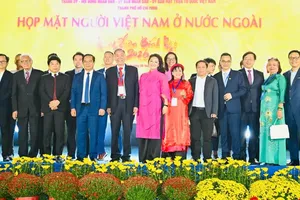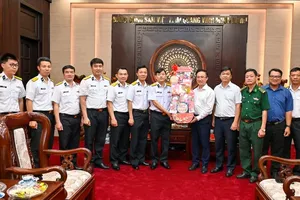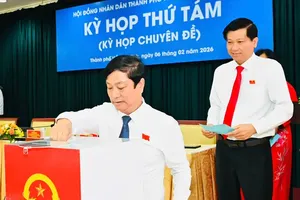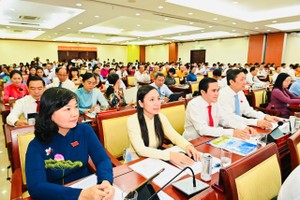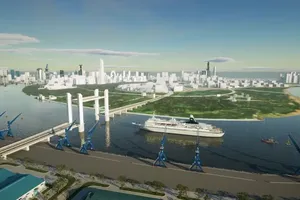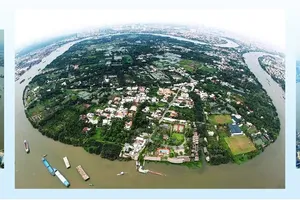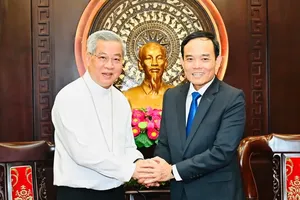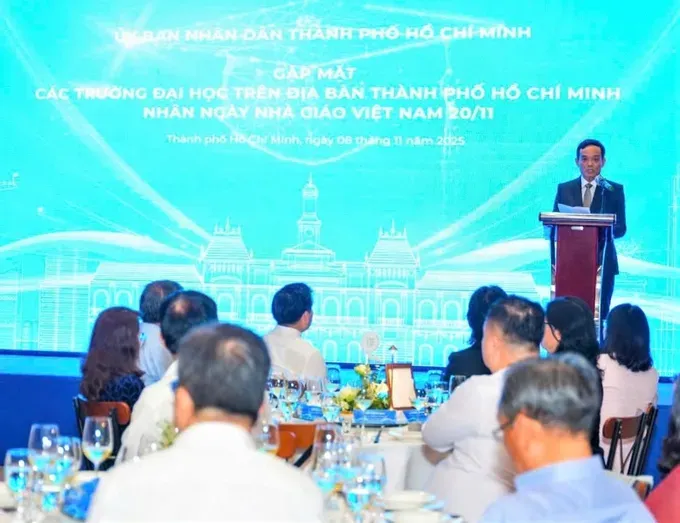
The event provided an opportunity for city leaders to express their gratitude to the teaching staff, as well as to listen to and address the requests and proposals of the university’s principals regarding local development policies.
The gathering was attended by Secretary of the Ho Chi Minh City Party Committee Tran Luu Quang; Associate Professor Dr. Vu Hai Quan, Director of Vietnam National University-Ho Chi Minh City (VNU-HCM); Chairman of the Ho Chi Minh City People’s Committee Nguyen Van Duoc, along with more than 70 leaders from universities and academies across the city.
Speaking with educators and university leaders at the meeting, Secretary of the Ho Chi Minh City Party Committee Tran Luu Quang acknowledged the efforts and initiatives of the academic community.
He emphasized that the city always regards education, science, and technology as the foundation for sustainable development. Ho Chi Minh City has also adopted policies to utilize surplus land and facilities for the development of education and healthcare.
The Secretary of the Ho Chi Minh City Party Committee acknowledged the initiatives and proposals from universities aimed at advancing the city’s socio-economic goals, including programs for training human resources for key projects, the Green Transition Program in Ho Chi Minh City, focusing on Can Gio and Con Dao, and international cooperation initiatives in healthcare.
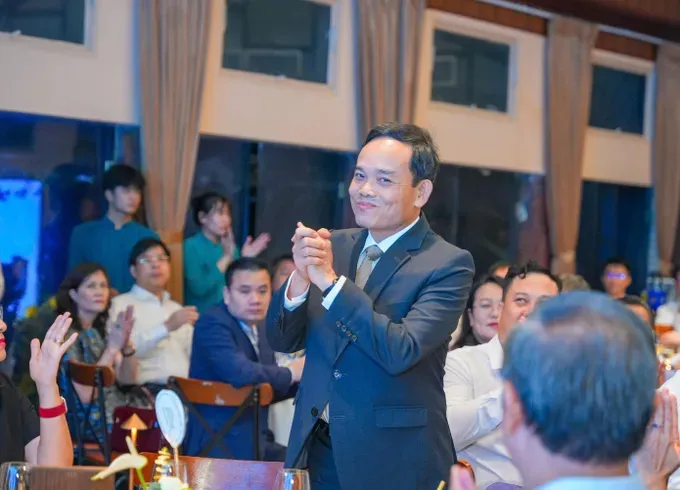
Ho Chi Minh City will undergo changes in the near future, particularly in the approaches and methods used to tackle difficult issues, as the old ways are no longer effective, he emphasized.
He announced that Ho Chi Minh City plans to establish a Steering Committee for the city’s development, with the Green Transition potentially forming a subcommittee under it. The city is also considering proposals to accelerate the green transition in priority sectors. Regarding waste management, Ho Chi Minh City will initially prioritize waste-to-energy processing while simultaneously recycling certain types of waste.
Regarding the development of Con Dao special zone, the city will prioritize transforming it into a green area, gradually transitioning to electric vehicles, and encouraging universities to bring students there at least once to learn about the island’s history and values. Ho Chi Minh City is committed to providing every possible support for universities to maximize their development, leveraging the “university–academy–government” model effectively.
Noting that current institutional frameworks are undergoing significant changes. If these shifts are effectively harnessed, they will create additional opportunities for Ho Chi Minh City’s development. He stressed that the city hopes to receive more input from experts and scientists, assigning the Ho Chi Minh City Institute for Development Studies as the focal point to collect, categorize, and provide advice and recommendations.
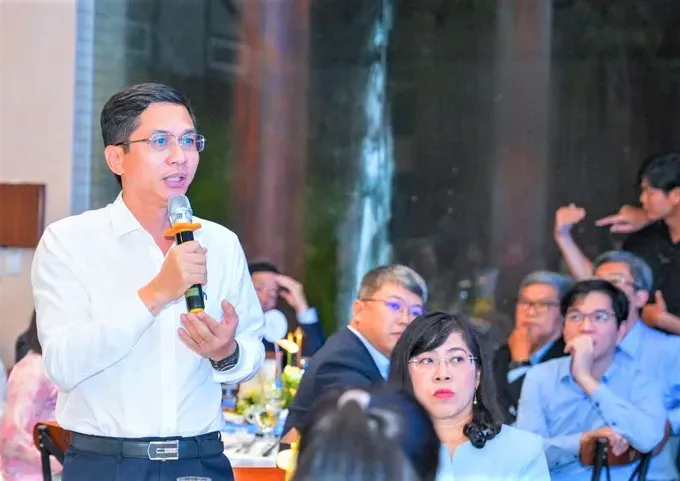
Speaking at the meeting, Associate Professor Dr. Hoang Cong Gia Khanh, Rector of the University of Economics and Law under the Vietnam National University – Ho Chi Minh City, said that the policy of the central government and Ho Chi Minh City to transfer surplus public assets to educational and healthcare institutions following the recent organizational restructuring is both timely and appropriate.
He emphasized the need to clearly define principles, criteria, and conditions for such transfers, including general rules and specific criteria for individual cases, to ensure that the process is effective, transparent, and aligned with its intended goals.
In the context of the city’s expansion, the university fully supports the policy of reallocating surplus public assets to education and healthcare institutions and stands ready to continue research to refine the framework of principles, criteria, and conditions for implementation.
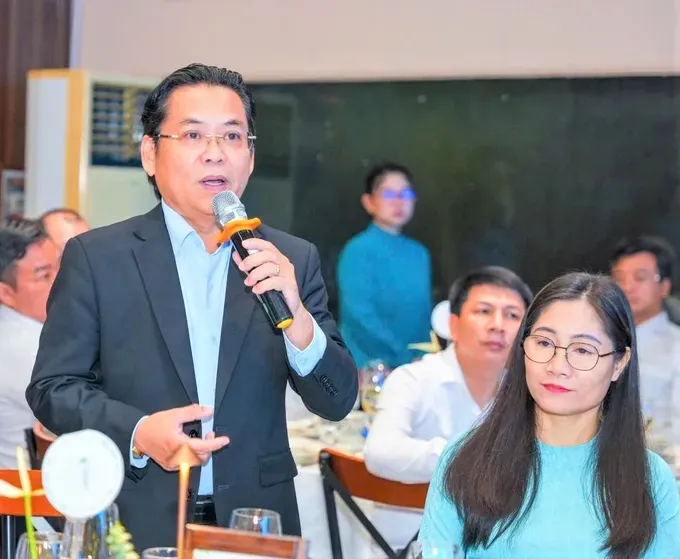
According to Associate Professor Dr. Nguyen Huu Huy Nhut, Vice Rector in charge of Hoa Sen University, following the city’s spatial expansion, Ho Chi Minh City should view the marine economy as a new growth driver, aiming toward a green and knowledge-based economy. Developing the marine economy is not merely about exploiting geographical advantages; it represents a vision to transform the growth model toward a green, circular, and knowledge-based economy where the sea is not just a resource but a space for sustainable development.
Dr. Nguyen Huu Huy Nhut proposed that the city focus on three pillars, including developing modern ports, logistics, and maritime services; developing coastal urban areas and a green marine tourism economy; and establishing a center for research and innovation in the marine economy. The university hopes the city will commission programs for human resource training and research to realize this vision.
Dr. Le Mai Lan, Vice President of Vingroup cum President of VinUniversity, noted that Ho Chi Minh City emits an estimated 35–40 million tons of CO₂ equivalent each year. Without early action, the damage caused by pollution and flooding could cost the city up to 3 percent of its GRDP by 2050.
In response, VinUni proposed three strategic directions, including establishing the Ho Chi Minh City Steering Committee and Green Transition Fund, launching the Electrification and Circular Economy Program 2025–2030, and introducing a Green Data and Indicators Strategy to support the city’s sustainable and green development.
VinUni and Vingroup pledged to continue accompanying the city in its green and digital transformation journey, from policy consultation to technological investment.
Professor Dr. Nguyen Thu Anh, Director of the University of Sydney Vietnam Institute, proposed that Ho Chi Minh City accelerate the application of artificial intelligence (AI) and big data in healthcare, establish a biotechnology and precision medicine center, and leverage natural resources and Vietnam’s culinary strengths to develop clean functional foods.
Professor Dr. Huynh Van Son, Rector of Ho Chi Minh City University of Education, emphasized the importance of digitizing scientific data from universities, harnessing intellectual capacity, and piloting a model in which research is commissioned and assigned directly to local scientists to streamline administrative processes.
